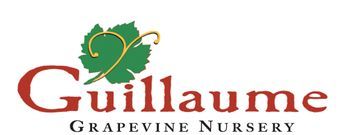 |
 |
Listed here are the varieties and clones we propagate in our mother blocks which are available for grafted and ownrooted plants production. All our material is certified. As an ENTAV-INRA licensee we mainly propagate ENTAV clones which we have worked with for a long time due to our French background. For any variety or clone not on this list please contact us, we will do our best to provide you with the material you need. We follow a strict testing protocol for all budwood we use, either internally supplied through our mother blocks or externally through our various partnerships.
| Variety | FPS Clones | ENTAV-INRA Clones |
|---|---|---|
| Cabernet Franc | 214 - 327 - 623 | |
| Cabernet Sauvignon | 4.1 - 7.1 - 8.1 ** - 61 * ** | 15 - 169 - 338 - 412 - 685 |
| Counoise Noir | 508 | |
| Gamay Noir | 358 | |
| Grenache Noir | 515 | |
| Malbec (Cot) | 596 - 598 | |
| Merlot | 181 - 348 | |
| Mourvedre | 450 | |
| Nero di Avola | 1 * | |
| Petit Verdot | 400 - 1058 | |
| Pinot Meunier | 864 | |
| Pinot Noir | 2A.1 ** - 73.1 ** - 125 * | 667 - 743 - 943 |
| Primitivo (Zinfandel) | 3.1 ** - 5.1 ** | |
| Syrah | 19 * | |
| Tannat | 717 | |
| Tempranillo | 770 |
| Variety | FPS Clones | ENTAV-INRA Clones |
|---|---|---|
| Chardonnay | 4.1 ** - 87 * | 76 - 96 - 548 |
| Chenin Blanc | 982 | |
| Colombard | 551 | |
| Gewurztraminer | 47 | |
| Gros Manseng | 1 * | |
| Marsanne | 574 | |
| Melon | 229 | |
| Muscat Blanc | 453 | |
| Pinot Blanc | 54 | |
| Pinot Gris | 52 | |
| Riesling | 49 | |
| Roussanne | 468 | |
| Sauvignon Blanc | 1.1 ** | 376 - 530 - 906 |
| Semillon | 173 | |
| Viognier | 6 * | 642 |
As a result of our passion for grapes and vines, for years we have been researching new clones of the main varieties in French aged vineyards with the objective of enriching the Vinifera genetic heritage while retaining, and sometimes improving, the features which have made the success of these varieties for centuries.
We have made the fruit of our research available in America by registering these clones at UC Davis Foundation Plant Services. The samples we brought to the US underwent a quarantine period and intensive testing before we started propagating them in our mother blocks in 2013. They are now available for grapevine production exclusively from Guillaume Grapevine Nursery. Listed below is the list and a short presentation of our proprietary clones currently available, please contact us for more information.
Cabernet Sauvignon 61 was selected in a 72-year old vineyard in the Bordeaux Medoc area. It produces medium-sized clusters and berries and delivers rich, complex wine, very persistent in mouth and with outstanding smooth tanins. These characteristics make this clone the perfect candidate to produce premium wines.
Chardonnay 87 is the result of a 10-year selection process in Burgundy's Meursault area aged vineyards (60 year-old on average). 8 clones were first selected, tested for viruses then put in observation and micro-vinified for 10 years. Chardonnay 87 was selected for its ability to produce delicate and fine wines, with an exceptional mouthfeel.
This selection comes from an old vineyard in South Western France. Gros Manseng 1 is a medium producer with small clusters but good fertility. It has complex citrus and flowers aromas, allowing to produce fresh and mineral wines. It can be used in blends to bring freshness, it also has good potential for late harvest wines.
Nero di Avola is an Italian variety which enjoys a lot of sun and ripens later than Cabernet Sauvignon. It shows a good resistance to mildew. Nero di Avola 1 comes from Sicily, it is a high yielding clone which produces qualitative grape and very deep colour. Its powerful blackberry and red fruit aromas make it really special, it can either be used for blends or as a standalone.
Pinot Noir 125 comes from the Cotes-de-Beaune area in Burgundy. At the start of the selection process, 15 clones were chosen in various aged vineyards, then put into observation and micro-vinifed for 10 years. Pinot Noir 125 was finally chosen for its ruby red colour, smooth and powerful tannins, and a lesser sensibility to Botrytis (30% less sensitive than standard clones according to our measurements). With a low production level on average, the Pinot Noir FPS 125 offers an outstanding potential for premium wines.
This clone of Syrah comes from the Northern Cotes-du-Rhone area. It is the result of a 12-year selection process, which was first intended to remedy to the well-known Syrah decline while retaining the characteristics and the typicality of the variety. Among 8 clones first selected, Syrah 19 proved immune to Syrah decline and able to deliver intense and perfumed wines as well as medium-yield harvest.
Viognier 6 also comes from Northern Cotes-du-Rhone, more precisely the Condrieu area. After 6 years of observation and micro-vinifications, it was chosen among 12 candidates selected in aged vineyards for its aromatic power, with peach and apricot flavours, and its freshness.
Listed below is the list of rootstock varieties we propagate to produce grafted plants and rootings, as well as some basic information about each one. Most of the rootstock varieties we offer come directly from or are crossbreeds of the three main North American Vitis species; Vitis Riparia, Vitis Rupestris, Vitis Berlianderi. Thanks to this wide range of rootstock varieties, our plants can adapt to any climate and soil conditions.
|
|
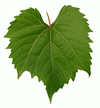 |
|
|
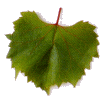 |
|
|
 |
|
|
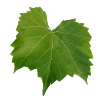 |
- Genealogy: Vitis Riparia x Vitis Rupestris
- Low vigor
- Good resistance to nematodes
|
|
 |
|
|
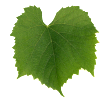 |
|
|
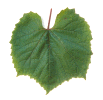 |
|
|
 |
|
|
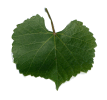 |
|
|
 |
|
|
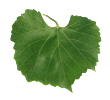 |
- Genealogy: Vitis Riparia x Vitis Solonis
- Low vigor
- Low drought tolerance
- High phylloxera and wet soil tolerance
- Best on fertile, medium to fine textured soils
- Genealogy: Vitis Vinifera x Vitis Rotundifolia
- High Philloxera resistance
- Does poorly on coarse, sandy soils due to low root knot nematode tolerance
- Tolerance to Fanleaf virus

Guillaume Grapevine Nursery
21208 CA-113, Knights Landing, CA 95645
(530) 735-6821
info@guillaumenurseries.com